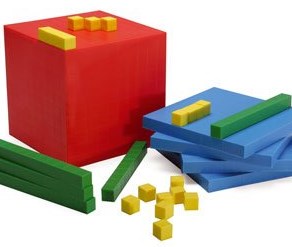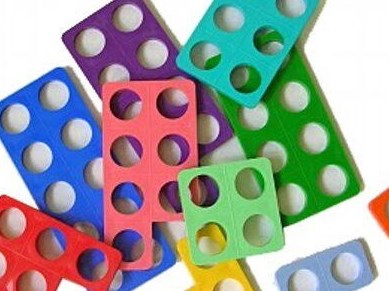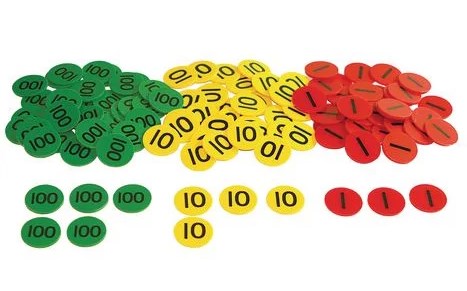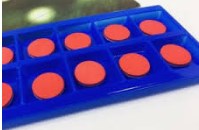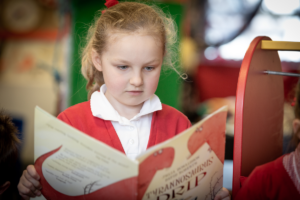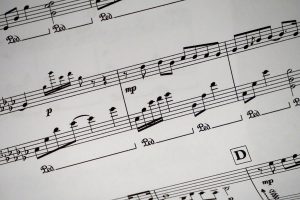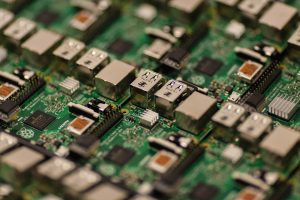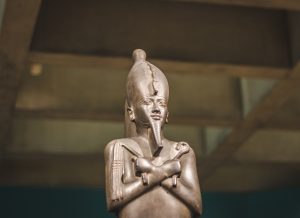Mathematics
Mathematics at Langley First School
At Langley First School we aim to equip all pupils with the skills and confidence to solve a range of problems through fluency with numbers and mathematical reasoning. Children are encouraged to see the mathematics that surround them every day and enjoy developing vital life skills in this subject.
Our Curriculum (Intent and Implementation)
In the Early Years children explore mathematical concepts through active exploration and their everyday play based learning. Children are taught key concepts and application of number using a hands on practical approach. EYFS practitioners provide opportunities for children to manipulate and explore a variety of objects which supports their understanding of quantity and number. Maths in the early years provides children with a solid foundation that will enable them to develop skills as they progress through their schooling and ensures children are ready for the Nation Curriculum.
In Key Stage One and Key Stage Two, children are taught all areas of Maths through the three areas of the National Curriculum; Fluency, Reasoning and Problem Solving. We teach mathematics to whole classes and do not label children. Lessons are planned based on formative assessment of what students already know and ,wherever possible, include all children in learning mathematical concepts. At the planning stage, teachers consider that scaffolding that may be required for children struggling to grasp concepts in the lesson and suitable challenge questions for those who may grasp the concepts rapidly.
In line with NCETM advice, one form of depth frequently used is variation (conceptual and procedural). Variation is one of the five ‘big ideas’ at the heart of Teaching for Mastery and opportunities are planned for to allow children to ‘Dive Deeper’. For example, a child who can produce a quick correct answer may be asked to solve the question using more than one other procedure, to represent the question in more than one way (such as the bar model or part whole).
Support and SEND
Children may be supported by additional adults, different resources or differentiated activities. They may also complete additional activities outside of the mathematics lesson, for example
pre-teaching vocabulary, concepts or procedures in order to help them access the learning when they whole class are being taught. Stem sentences are also used, where appropriate, during lessons to help support all learners and focus on precise mathematical vocabulary. Lessons are sequential, making sure pupils build on previous skills and prior knowledge.
Greater Breadth
In order to address the aims of the NC, our long/medium term plans have been adjusted to allow longer on topics. Each lesson focus is on one key conceptual idea and connections are made across mathematical topics.
Children also take part in daily triathlons. This is where children get to practise three areas of Maths previously taught in order to keep skills at the fore. They can be seen as a written task, whole class carpet time and/or in guided group work. The triathlons can take place at any point during the day.
Growth Mindset
We aim for all children to love Maths. Having a growth mindset (the belief that you are in control of your own ability, and can learn and improve) is the key to success. We model and teach that yes, hard work, effort, and persistence are all important, but not as important as having that underlying belief that you are in control of your own destiny. This also sup-ports our school belief in the three R’s.
Mastery for all
At Langley, we develop reasoning and deep understanding. Problems are often set using real life contexts or linked to Topic work. Carefully chosen practical resources and pictorial representations are used to explore concepts. These pictorial representations will appear in books as children show their understanding, rather than answers to a series of calculations. The use of practical resources, pictorial representations and recording takes place in every lesson (the CPA approach).
Greater Depth
In order to ensure children have a secure and deep understanding of the content taught, our plans have been adjusted to
allow longer on topics and we move more slowly through the curriculum. We use the White Rose Hub as a guide for planning and to allow for small steps to lead to a greater understanding of a mathematical area. This is also to help support progression and
variation. Teachers adapt each lesson to meet the needs of their children and add extra questioning / tasks which will allow children to learn the content more deeply. The learning will focus on one key conceptual idea and connections are made across math-ematical topics. To outsiders it may appear that the pace of the lesson is slower, but progress and understanding is enhanced.
Assessment (Impact)
NTS termly assessments are used to check progress, inform teaching and address any misconceptions. Open-ended and carefully targeted questions are a part of everyday lessons so staff gather daily formative assessments.
During lessons, teachers are constantly assessing and giving verbal feedback to children where appropriate. Marking allows the teacher to see which children have achieved the lesson objective and who then needs some support or mastery challenge the following day.
Mastering Number Project by NCETM
This project aims to secure firm foundations in the development of good number sense for all children from Reception through to Year 1 and Year 2. The aim over time is that children will leave KS1 with fluency in calculation and a confidence and flexibility with number.
Attention will be given to key knowledge and understanding needed in Reception classes, and progression through KS1 to support success in the future. In order to do this, teachers will provide a daily teaching session for all children of 10 to 15 minutes, in addition to their normal maths lesson.

